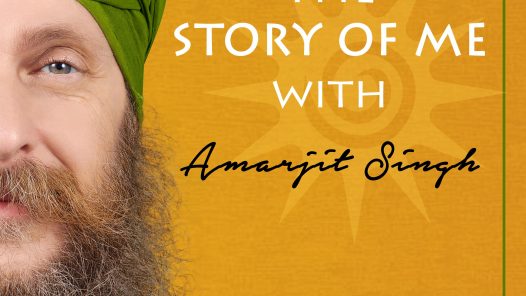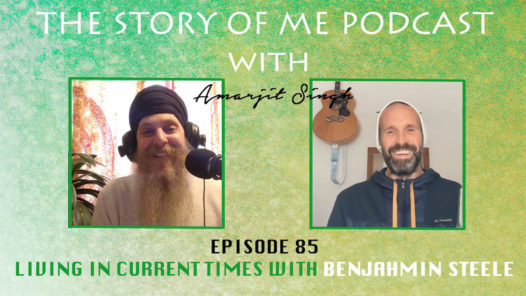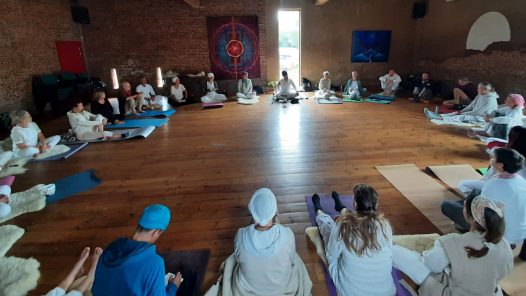Amarjit talks about how it’s important to have experiences where you look back and say, “I can’t imagine what my life would be like if I had never had this experience.” These big experiences have such a huge impact on your course in life and self-awareness. He goes on to provide methods for you to facilitate experiences.
What is your experience?
Every moment is an experience in the technical sense. Experience is relating through change. Sometimes there is profound change, while other times there is little.
What makes one experience profound, while others barely register?
The intensity of the experience is determined by the degree of awareness that is attained. It is important when looking back at your experiences to think: “I can’t imagine what my life would be like if I had never had this experience.” If you have not had enough experiences where you can say this, your experiences are too similar and you are inhibiting your awareness. You are not open enough to allow yourself to be realized.
It isn’t any particular experience. It’s the impact that it has on you. It could be anything: meeting a person, having a relationship, having a child, moving somewhere, etc. Often we learn the most from difficulties: getting a disease or illness, having an accident, losing something or someone, having a difficult period in life, experiencing a deep depression, etc.
It just has to be something significantly different enough that it effected you so intensely that you were able to learn something about yourself that was so deeply hidden inside you that you were unaware of it; instead of the gradual process of waking up, you were roused from a deep slumber and leapt up.
What prevents you from experiences?
We are constantly putting labels on ourselves whenever we utter the phrase “I am”. We say, “I am a father/mother/husband/wife/professional/homeowner/etc.” However, these false identifications limit your life experiences, limit true understanding of the self, and bring you suffering.
Words are, at best, only close approximations of experiences. Whenever you try to put a definition to something you are limiting what it is. We do this with ideas all the time, but we also do this with ourselves, and others.
When you associate yourself with a particular category or group you limit your range of experiences. This happens frequently when we identify with a particular culture. Culture is so ingrained into our psyche that we automatically identify with “the norms” of a culture and then experience life through this collective definition.
As Terence McKenna so insightfully said, “Culture is not your friend. Culture is for other people’s convenience and the convenience of various institutions, churches, companies, tax collection schemes, and what have you. It is not your friend. It insults you, it disempowers you…”
You can look at what culture considers the path of life: go to college, get a job, get married, get a house, have children, etc. This is what has been built into your mind through culture. The stronger you identify yourself with ideas and concepts, the more you limit the possibilities of life. You say, “I could never see myself doing that.” Sometimes you say this consciously, but often this is an unconscious conversation you have with yourself.
Ways to break limiting identifications
- Periodically do something that is completely different than you would normally think of yourself as doing; like take a workshop or class in a topic that is far away from what you would normally see yourself doing. It may be something that you will never do again, and even something that seemed strange, but do it. Get out of your comfort zone to open up the possibilities in your life.
The more often you do this, the wider the view you will have of yourself. You will start to think, I never thought I would do “X”, but if I can do that, why can’t I do “Y”. This is the goal to open up the confidence and view you have of yourself. Don’t limit who you think you are, or what you are capable of doing.
- Don’t identify with titles. Identifying with particular professions has a limiting effect on your self-expression as well. Often people work in a particular industry and stay within that industry their entire career. Sometimes it may be because they enjoy the industry, which is fine. However, other times it is because they associate themselves with the particular industry.
Instead of identifying with the job, you should identify with your self-expression, which often can be transposed to various environments.
- Embrace uncertainty. Not knowing where your path will take you is the magic of life. Don’t let it be the thing that holds you back.
- Don’t put economics and comfort over experience. We often use security in place of experience. It is what binds you to many patterns in your life.
- Entertain your curiosity. If you find something fascinating, investigate it. If you aren’t curious, it means that you are not connected to your internal self. Work on enhancing this connection if you don’t find things in life interesting enough to pursue them.
- Build a relationship with yourself that allows you to hear that intuitive voice. You need to cultivate silence and stillness to hear intuition. What is intuition but God’s voice inside you guiding you back to Him.
Allow intuition to be your guide, curiosity to keep you engaged, and awareness to be your reflection in uncovering the one Truth.
Ek Ong Kar Satnam
Support the show with a donation. Go to the podcast website for the donate button: https://www.thestoryofmepodcast.com/contact/
Submit your questions: https://www.thestoryofmepodcast.com/contact/
Amarjit’s Social Media:
Facebook: https://www.facebook.com/amarjitsingh810
Instagram: https://www.instagram.com/amarjitsingh8/
Podcast Facebook Group: https://www.facebook.com/groups/thestoryofmepodcast/
Visit our sponsors: https://www.singhflutes.com/
Music courtesy of http://www.aykanna.com/







